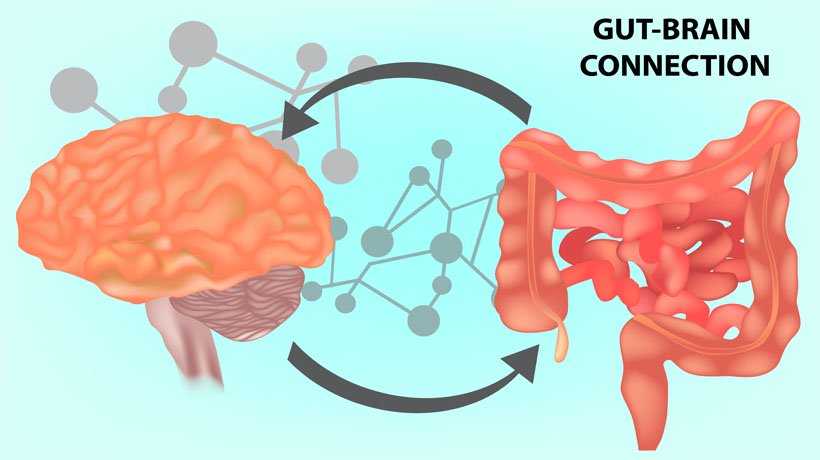The gut, often referred to as the “second brain,” houses trillions of microorganisms that form the gut microbiome. Recent studies have unveiled a strong correlation between the health of our gut and our mental well-being. Understanding this connection has opened new avenues for exploring innovative approaches to mental health management. Let’s delve into the fascinating details of the gut-mental health connection.
The Gut Microbiome: An Ecosystem within Us The gut microbiome is a complex ecosystem of microorganisms, including bacteria, viruses, and fungi, residing in our digestive tract. These microorganisms play a vital role in maintaining various aspects of our health, including digestion, nutrient absorption, and immune function. However, emerging research suggests that they also exert a significant influence on our mental health.
The Gut-Brain Axis: A Bidirectional Communication System The gut and the brain communicate through a bidirectional pathway known as the gut-brain axis. This intricate communication network involves various channels, including the nervous system, immune system, and hormonal pathways. Signals from the gut microbiome can influence brain function and vice versa, forming a dynamic relationship that impacts our mental well-being.
Gut Microbiome and Mental Health Disorders Numerous studies have observed distinct differences in the gut microbiome composition between individuals with mental health disorders, such as depression, anxiety, and even neurodevelopmental conditions like autism spectrum disorder. While the exact mechanisms are not fully understood, researchers believe that imbalances in the gut microbiome, known as dysbiosis, may contribute to the development or exacerbation of these conditions.
The Role of Gut Microbes in Neurotransmitter Regulation The gut microbiome produces and influences various neurotransmitters, such as serotonin, dopamine, and gamma-aminobutyric acid (GABA), which play crucial roles in mood regulation. Serotonin, often referred to as the “happy hormone,” is predominantly produced in the gut and is involved in mood, appetite, and sleep regulation. Dysbiosis can disrupt the delicate balance of neurotransmitters, potentially affecting mental health.
Inflammation and the Gut-Brain Connection Inflammation, a natural immune response, has also been linked to mental health disorders. Imbalances in the gut microbiome can trigger chronic low-grade inflammation, which may contribute to the development of mood disorders. Inflammation can disrupt the normal functioning of the brain and alter neurotransmitter production, leading to mood disturbances and cognitive impairments.
Implications for Mental Health Management Understanding the gut-mental health connection opens up promising avenues for mental health management. Researchers are investigating the potential therapeutic benefits of interventions that target the gut microbiome, such as probiotics, prebiotics, and dietary modifications. These approaches aim to restore the balance of beneficial gut bacteria and improve mental health outcomes.
The Role of Diet in Nurturing a Healthy Gut A healthy diet rich in fiber, fruits, vegetables, and fermented foods can promote a diverse and thriving gut microbiome. These dietary choices provide the necessary nutrients for beneficial gut bacteria to flourish. Conversely, diets high in processed foods, sugar, and unhealthy fats can negatively impact the gut microbiome and potentially contribute to mental health disturbances.
Holistic Approaches to Mental Health The gut-mental health connection underscores the importance of holistic approaches to mental well-being. Strategies that prioritize a healthy lifestyle, including regular exercise, stress management, and quality sleep, complemented by a nourishing diet, can positively impact both gut health and mental health. Integrating these practices into everyday life may contribute to a more balanced and resilient mind-body connection.
It is important to note that the gut-mental health connection is a complex field of study, and further research is necessary to unravel its intricacies fully. Consulting with healthcare professionals, including mental health specialists and registered dietitians, can provide personalized guidance on optimizing gut health and managing mental well-being.
As our understanding of the gut-mental health connection expands, we are witnessing a paradigm shift in mental health care. By recognizing the impact of our gut microbiome on mental well-being, we open up new possibilities for more comprehensive and effective approaches to mental health management.
Disclaimer: The information provided in this news article is based on the mentioned sources and does not substitute professional medical advice. Please consult with healthcare professionals for personalized recommendations related to mental health or dietary modifications.



